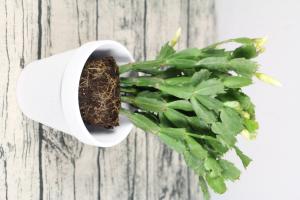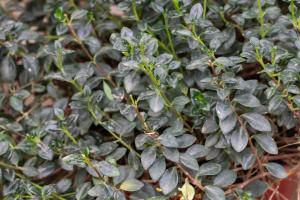Introduction
Watermelon plants, like all other plants, require water to grow and produce healthy fruits. The amount and frequency of watering a watermelon plant depends on various factors such as climate, soil, and plant size. In this article, we will explore how many times you should water a watermelon plant to ensure maximum yield.
Factors Affecting Watering Frequency
Before jumping into watering schedules, it’s important to understand the factors that influence the watering frequency of watermelon plants. These factors include:
Climate: Watermelon plants require more water in hot, dry climates than in cooler, humid areas.
Soil: Plants grown in sandy soil require more frequent watering than those grown in loamy soil
Plant Size: Young watermelon plants require more frequent watering than mature plants.
Rainfall: Regions with more rainfall may require less frequent watering than drier regions.
Watering Schedule for Young Watermelon Plants
Young watermelon plants require frequent watering to establish root systems and ensure proper growth. To ensure healthy growth, young watermelon plants should be watered every day or every other day. The amount of water should be enough to moisten the soil but not saturate it. Over-watering can lead to waterlogged roots and root rot, which can kill the plant.
Watering Schedule for Mature Watermelon Plants
As watermelon plants grow and mature, their watering needs change. Mature plants require less frequent watering than young plants. Depending on climate and soil conditions, mature watermelon plants should be watered two to three times per week, with each watering session lasting longer than the ones for young plants. Watering should be done early in the morning or late in the afternoon to prevent water loss through evaporation.
Watering Tips for Watermelon Plants
Aside from watering frequency, there are other tips to maximize the effectiveness of watering a watermelon plant. Some of these tips include:
Use drip irrigation or a soaker hose to prevent water splashing, which can spread soil-borne diseases and reduce water efficiency.
Watermelon plants require consistent moisture to minimize stress levels. Stress caused due to lack of water can reduce the plant's yield.
Do not water the plant's foliage, as this can attract pests and cause fungal diseases.
Use mulch to help retain moisture and prevent weeds.
Conclusion
Proper watering is critical for healthy growth and maximum yield of watermelon plants. While there is no one-size-fits-all watering schedule, it’s important to consider the climate, soil, plant size, and rainfall when determining the watering frequency. By following the watering tips and being consistent with watering, you can ensure the optimal growth and yield of your watermelon plant.

 how many times do yo...
how many times do yo... how many planted tre...
how many planted tre... how many pine trees ...
how many pine trees ... how many pecan trees...
how many pecan trees... how many plants comp...
how many plants comp... how many plants can ...
how many plants can ... how many plants and ...
how many plants and ... how many pepper plan...
how many pepper plan...




























